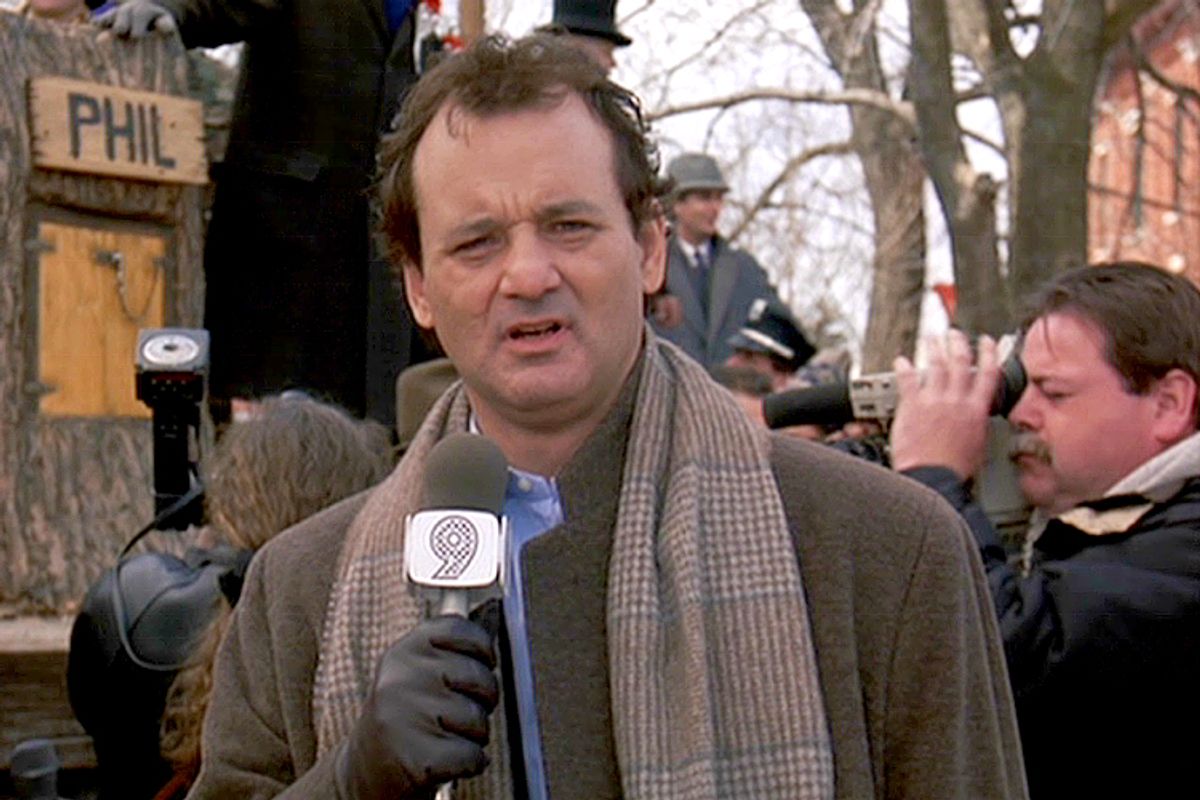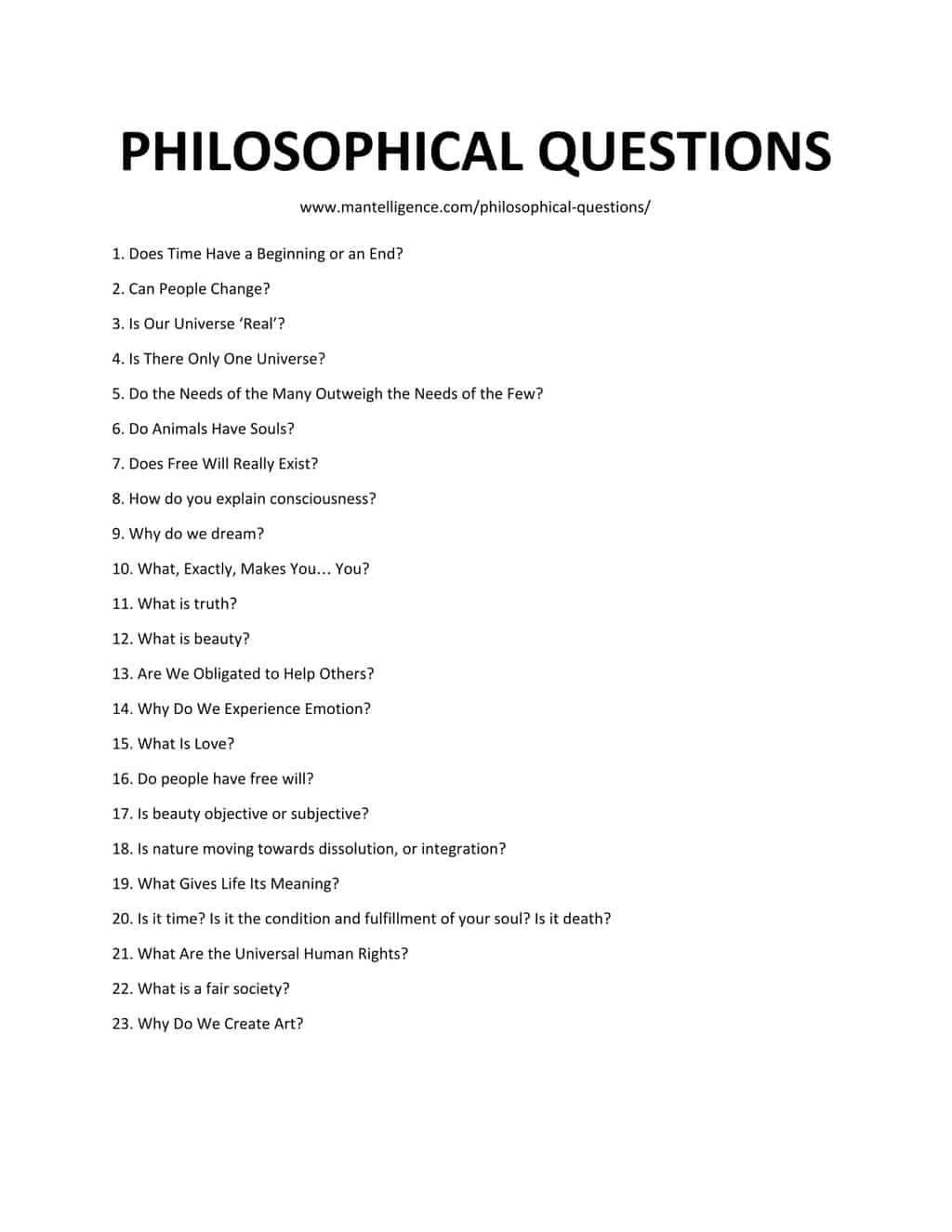Gallery
Photos from events, contest for the best costume, videos from master classes.
 |  |
 |  |
 |  |
 | |
 |  |
 |  |
SHAPIRO: The Bill Murray comedy about a weatherman who lives the same day over and over has had staying power. Philosophy classes include "Groundhog Day" in their syllabus. There was even a The Philosophy of 'Groundhog Day': You Can't Escape Until You Know How to Live Groundhog Day. By Patrick Lyon. Published Feb 3, 2022. Harold Ramis’ 1993 film, Groundhog Day, Groundhog Day might be about a single man forced to relive the same day over and over, but one sequence raises philosophical questions that go well beyond a single individual. Even though Phil Connors’ life resets every February 2 at 6:00 a.m., the movie also shows that for each Groundhog Day he experiences, the world still continues on for The plot of Groundhog Day is very much like Jewish wisdom literature, especially the Book of Ecclesiastes, alongside Egyptian texts like "The Good Fortune of the Dead" and "A Dispute Over Suicide Groundhog Day is a classic 90’s film which remains relevant today for its philosophically profound subtext and clever premise. questions and messaging raised by the film will be addressed In Groundhog Day (1993), Murray’s character, Phil Connors, finds that no matter what he does, every morning he wakes up at the same time, in the same bed, in the same hotel, in the same small American town, on the same day (February 2nd, ‘Groundhog Day’). In the subsequent twenty-four hours he is free to do anything he likes, but knows he It’s no coincidence that the groundhog’s called Phil too. Every day, the question is: Will Phil see his shadow? “Look out for your shadow there, buddy,” a diner patron jokes when learning Phil has the same name as the groundhog. But, as Wittgenstein remarked, a serious philosophical work could be written entirely in jokes. After repeating the same day over and over again Phil employs many philosophical ideas. One of the most noticeable is hedonism . Hedonism is simply defined as the idea that life is better the more The Metaphysics of Groundhog Day Lawrence Crocker says it’s about time, and personal identity, and free will. The 1993 movie Groundhog Day was, of course, made as an exploration of the metaphysics of time. The basic idea is that for on-location TV weatherman Phil Connors, the same Groundhog Day, February 2, in Punxsutawney keeps repeating. Explore Groundhog Day (1993) with these movie discussion questions — about time loops, personal transformation, and more. Character Development. How does Phil’s perception of himself change throughout the film? Discuss key moments in his character development. Discuss the moral lessons Phil learns during his repeated days. Groundhog Day might be about a single man forced to relive the same day over and over, but one sequence raises philosophical questions that go well beyond a single individual. Even though Phil Connors’ life resets every February 2 at 6:00 a.m., the movie also shows that for each Groundhog Day he experiences, the world still continues on for Groundhog Day is a classic 90’s film which remains relevant today for its philosophically profound subtext and clever premise. questions and messaging raised by the film will be addressed Lessons from "Groundhog Day": More resonant than ever today | TNews - Lessons from “Groundhog Day”: More resonant than ever today says: February 1, 2018 at 7:16 pm However ultimately it’s not, as one critic referred to as it, Phil’s now “effortless” aptitude for social gathering tips that liberates him from Punxsutawney purgatory. Michael P. Foley has a great article in Touchstone Magazine exploring some of the philosophical aspects of the movie Groundhog Day, starring Bill Murray and Andie MacDowell. Ranging from Nietzsche to Machiavelli and Aristotle to Augustine, Foley examines the movie from the vantage point of both philosophy and theology. Here is my favorite excerpt: Groundhog Day (Harold Ramis, 1993) and Only Lovers Left Alive (Jim Jarmusch, 2013) are fantasy films that use the device of practical immortality in order to raise important philosophical questions about what constitutes a good life and to explore the nature of romantic love. Groundhog Day provides fairly conventional answers about how to live a good life by focusing on issues of spiritual Groundhog Day. United States: Columbia Pictures. Outline. Introduction; Main Body: Plot of “Groundhog Day” Mill’s Utilitarianism in the Movie; Kantian’s Aspects; Hursthouse’s Ideas; Hindu Values in “Groundhog Day” Conclusion Like my experience with “Groundhog Day,” all manner of popular culture is increasingly subject to philosophical and academic examination. Harvard and other schools are studying the HBO series The director Harold Ramis didn't intend for his movie Groundhog Day to be heralded by religious thinkers as an example of how to live life, but that's exactly what happened after it was released in 1993. Salon reporter Mary Elizabeth Williams tells NPR's Mary Louise Kelly that after fighting cancer, she has come to understand the movie's universal message. The movie groundhog day has a guy living the same day over and over. And learns everything about everyone. He can then use this information to determine a desired path. I apologize if my main post, or this message, is messy and unclear. English is not my native language. From a philosophical standpoint. From a professional. Philosophical Films; Bill Murray Battles Pittsburgh Time Warp by Janet Maslin, New York Times, February 12, 1993; Review of Groundhog Day in Philosophical Films; Review of Groundhog Day in “Philosophy Now” by Mike Faust; Groundhog Day: the perfect comedy, for ever by Ryan Gilbey, The Guardian, Thursday 7 February 2013;
Articles and news, personal stories, interviews with experts.
Photos from events, contest for the best costume, videos from master classes.
 |  |
 |  |
 |  |
 | |
 |  |
 |  |